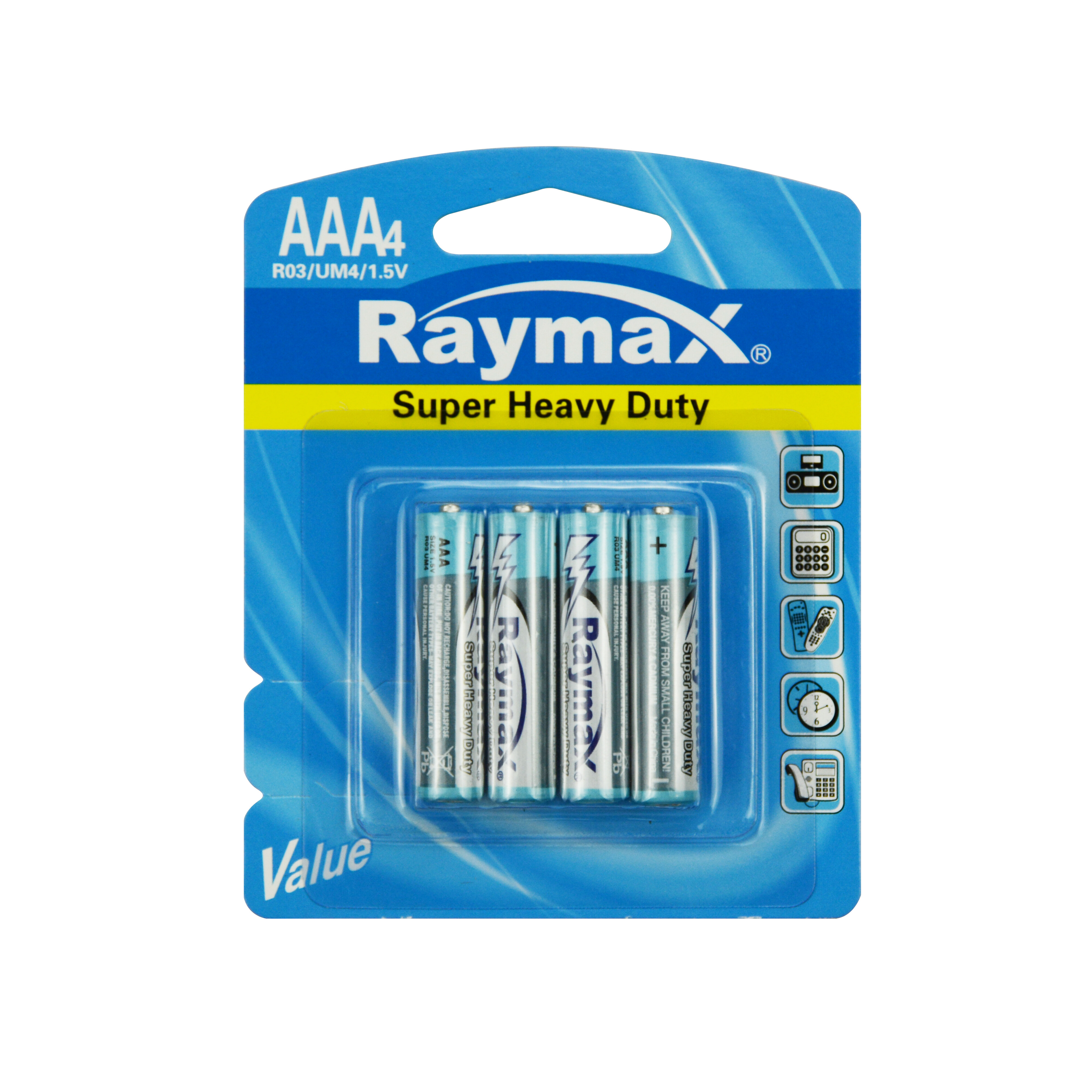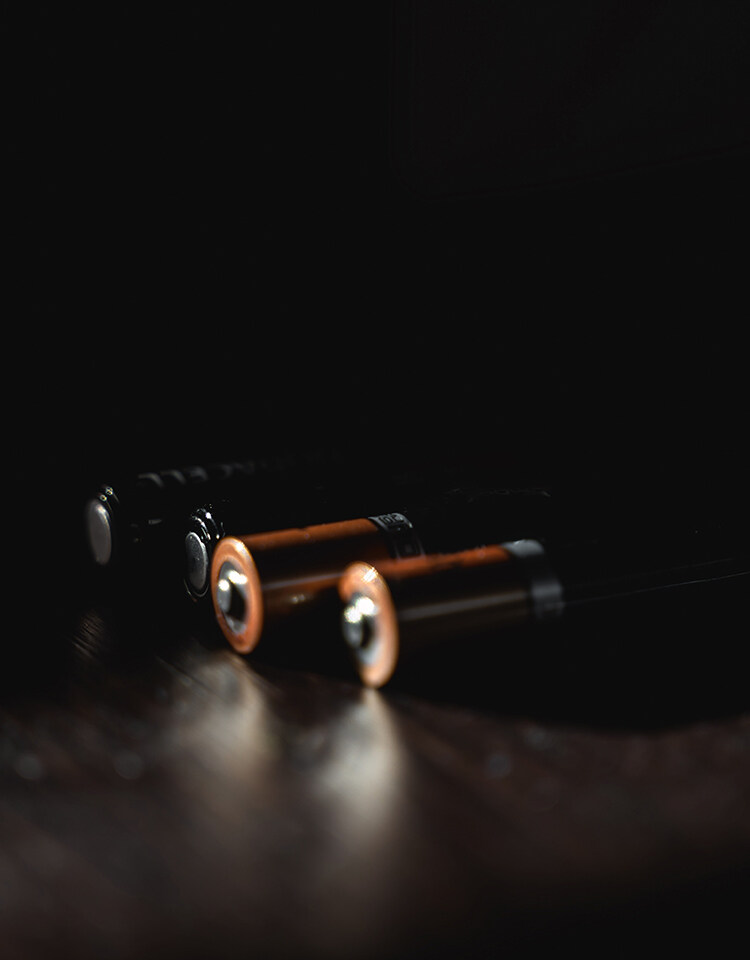Email format error
Email cannot be empty
Email already exists
6-20 characters(letters plus numbers only)
The password is inconsistent
Email format error
Email cannot be empty
Email does not exist
6-20 characters(letters plus numbers only)
The password is inconsistent

Alkaline battery & Button cell manufacturing process-News

Comparison with Other Battery Types: Carbon Zinc AAA Batteries vs. Alkaline and Lithium
In today's world of electronics and gadgets, batteries are the unsung heroes that power our devices. Among the various types available, AAA batteries stand out for their versatility and widespread use in everything from remote controls to small electronic devices. Here, we delve into the differences between three prominent types: Carbon Zinc, Alkaline, and Lithium AAA batteries.
Introduction to Battery Types
Before diving into the specifics, it's crucial to understand the basic characteristics and applications of each battery type. AAA batteries are commonly used in devices requiring a compact power source, where their size and energy output play a critical role.
Carbon Zinc AAA Batteries
Overview of Carbon Zinc AAA Batteries
Carbon Zinc batteries, also known as zinc-chloride or Leclanché batteries, are one of the oldest types of batteries still in use today. They utilize a zinc electrode and a manganese dioxide electrode separated by an electrolyte paste, typically ammonium chloride.
Carbon Zinc AAA batteries are known for their simplicity and affordability. They are widely used in low-drain devices such as remote controls, wall clocks, and certain types of flashlights. Their design allows for intermittent use over extended periods, making them suitable for devices that are not constantly in use.
Advantages of Carbon Zinc AAA Batteries
Carbon Zinc batteries offer several advantages:
1. Cost-effectiveness: They are generally cheaper to manufacture than alkaline or lithium batteries, making them a cost-effective choice for budget-conscious consumers.
2. Suitable for Low-Drain Devices: Due to their lower energy density compared to alkaline and lithium batteries, carbon zinc batteries excel in devices with minimal power demands. They can last a long time in devices that draw small amounts of current intermittently.
3. Wide Availability: These batteries are widely available and come in various pack sizes, making them convenient for household and everyday use.
Disadvantages of Carbon Zinc AAA Batteries
Despite their affordability and versatility, carbon zinc batteries have notable drawbacks:
1. Lower Energy Density: They have lower energy density compared to alkaline and lithium batteries, which translates to shorter operating times in high-drain devices.
2. Limited Shelf Life: Carbon Zinc batteries have a relatively short shelf life compared to alkaline and lithium counterparts. They tend to lose their charge over time, especially if stored for extended periods.

Alkaline AAA Batteries
Overview of Alkaline AAA Batteries
Alkaline batteries are the most common type of household battery. They use manganese dioxide as the positive electrode and zinc powder as the negative electrode, with an alkaline electrolyte such as potassium hydroxide.
Alkaline AAA batteries are known for their higher energy density and longer shelf life compared to carbon zinc batteries. They are widely used in a variety of devices, including toys, cameras, and portable audio equipment.
Advantages of Alkaline AAA Batteries
Alkaline batteries offer several advantages:
1. Higher Energy Density: They provide more power and longer operating times compared to carbon zinc batteries, making them suitable for high-drain devices like digital cameras and electronic gadgets.
2. Longer Shelf Life: Alkaline batteries can retain their charge for several years when stored properly, making them a reliable choice for emergency supplies and infrequently used devices.
3. Versatility: They are widely available and come in various sizes and configurations, catering to different consumer needs and preferences.
Disadvantages of Alkaline AAA Batteries
However, alkaline batteries also have their limitations:
1. Higher Cost: They tend to be more expensive than carbon zinc batteries, which can add up over time, especially for devices that require frequent battery changes.
2. Performance in Extreme Temperatures: Alkaline batteries may experience reduced performance in very high or low temperatures, affecting their suitability for outdoor and extreme environment use.
Lithium AAA Batteries
Overview of Lithium AAA Batteries
Lithium batteries utilize lithium metal or lithium compounds as electrodes. They are known for their high energy density and long shelf life, making them ideal for devices that require consistent, high-performance power.
Lithium AAA batteries are commonly used in specialty devices such as digital cameras, medical equipment, and certain types of electronics where performance and reliability are critical.
Advantages of Lithium AAA Batteries
Lithium batteries provide several key advantages:
1. Highest Energy Density: They offer the highest energy density among AAA batteries, providing extended runtime and superior performance in high-drain devices.
2. Extended Shelf Life: Lithium batteries have a significantly longer shelf life compared to carbon zinc and alkaline batteries, often retaining their charge for up to 10 years or more.
3. Performance in Extreme Conditions: They perform well in extreme temperatures, both hot and cold, making them suitable for outdoor use and harsh environments.
Disadvantages of Lithium AAA Batteries
Despite their advantages, lithium batteries have some drawbacks:
1. Cost: Lithium batteries are generally more expensive than carbon zinc and alkaline batteries, which can be a deterrent for some consumers, especially in devices that require frequent battery changes.
2. Safety Concerns: There are safety concerns associated with lithium batteries, particularly related to the potential for thermal runaway and fire hazards if not handled or disposed of properly.
Conclusion
In conclusion, the choice between carbon zinc, alkaline, and lithium AAA batteries depends largely on the specific application and usage requirements. Each type offers unique advantages and disadvantages that cater to different consumer needs and device specifications.
For budget-conscious consumers or devices with low power demands, carbon zinc AAA batteries provide a cost-effective solution with adequate performance. Alkaline AAA batteries are versatile and widely used, offering higher energy density and longer shelf life for everyday devices and high-drain applications. Lithium AAA batteries excel in performance-critical situations where extended runtime and reliability are paramount, albeit at a higher cost.
Understanding these differences allows consumers to make informed decisions when selecting batteries for their devices, ensuring optimal performance and longevity. Whether it's powering a TV remote or a digital camera, the right choice of AAA battery type can make a significant difference in device performance and user satisfaction.
By considering factors such as energy requirements, cost, and environmental conditions, consumers can choose the battery type that best meets their needs, ensuring reliable power supply for their favorite gadgets and electronics.

